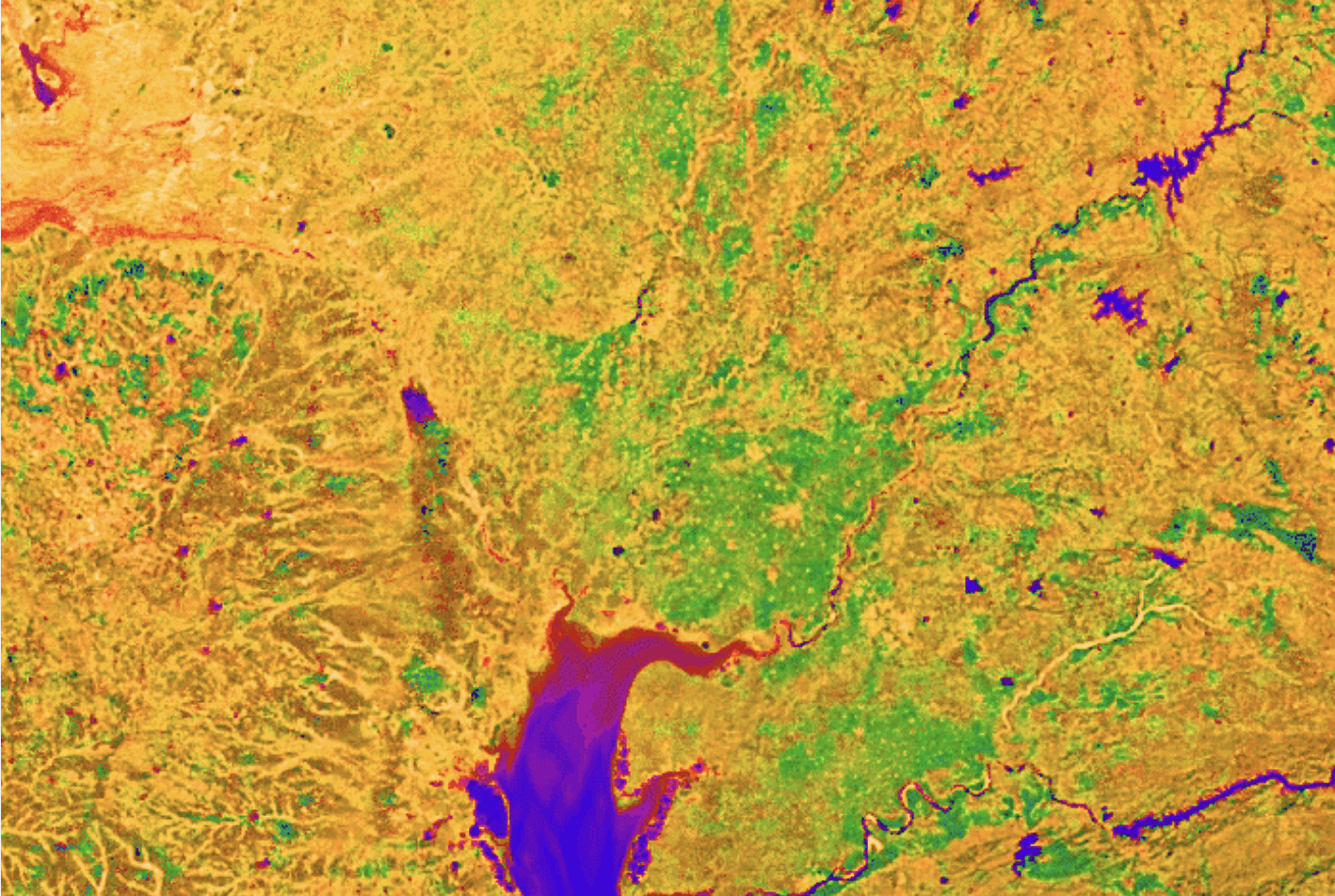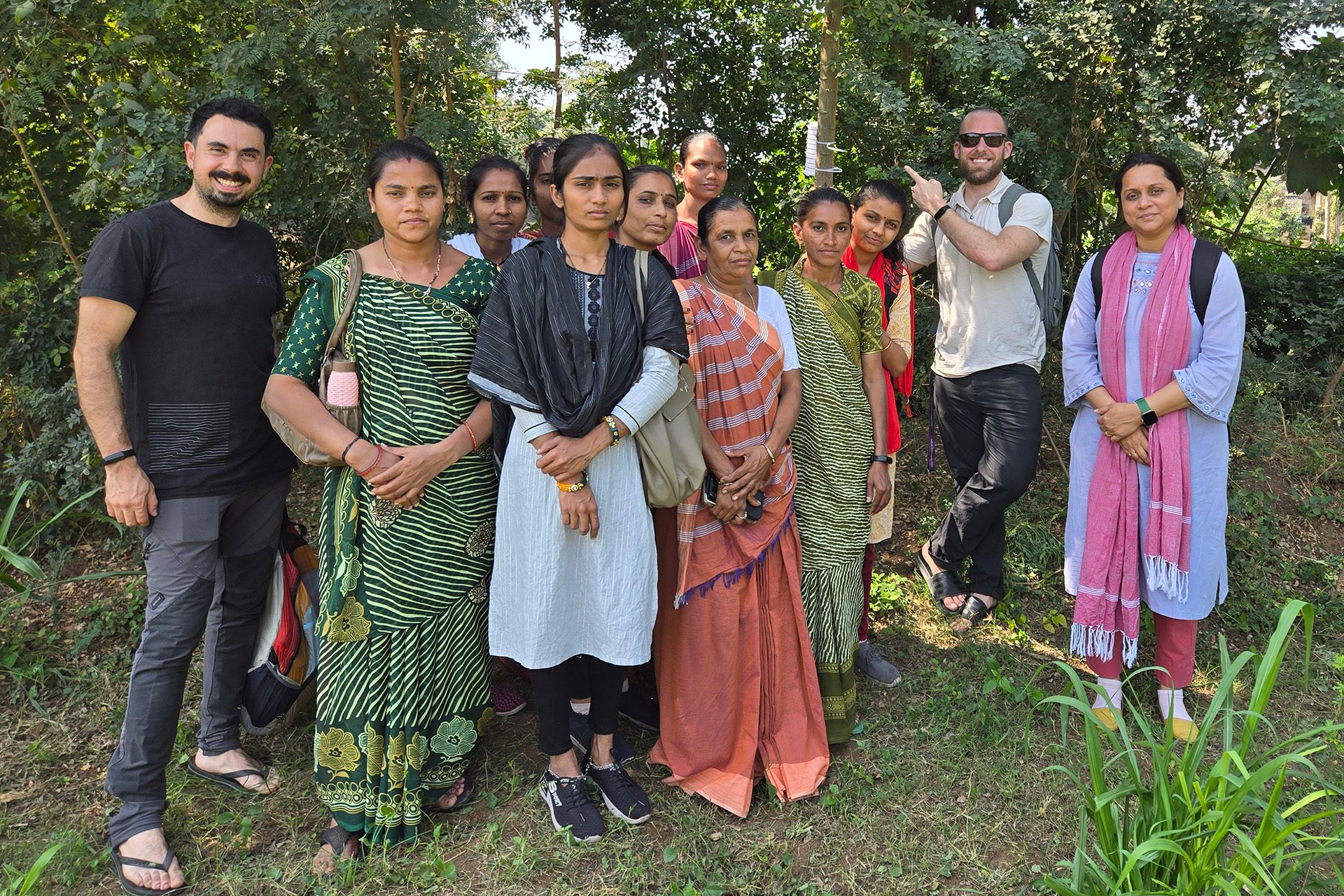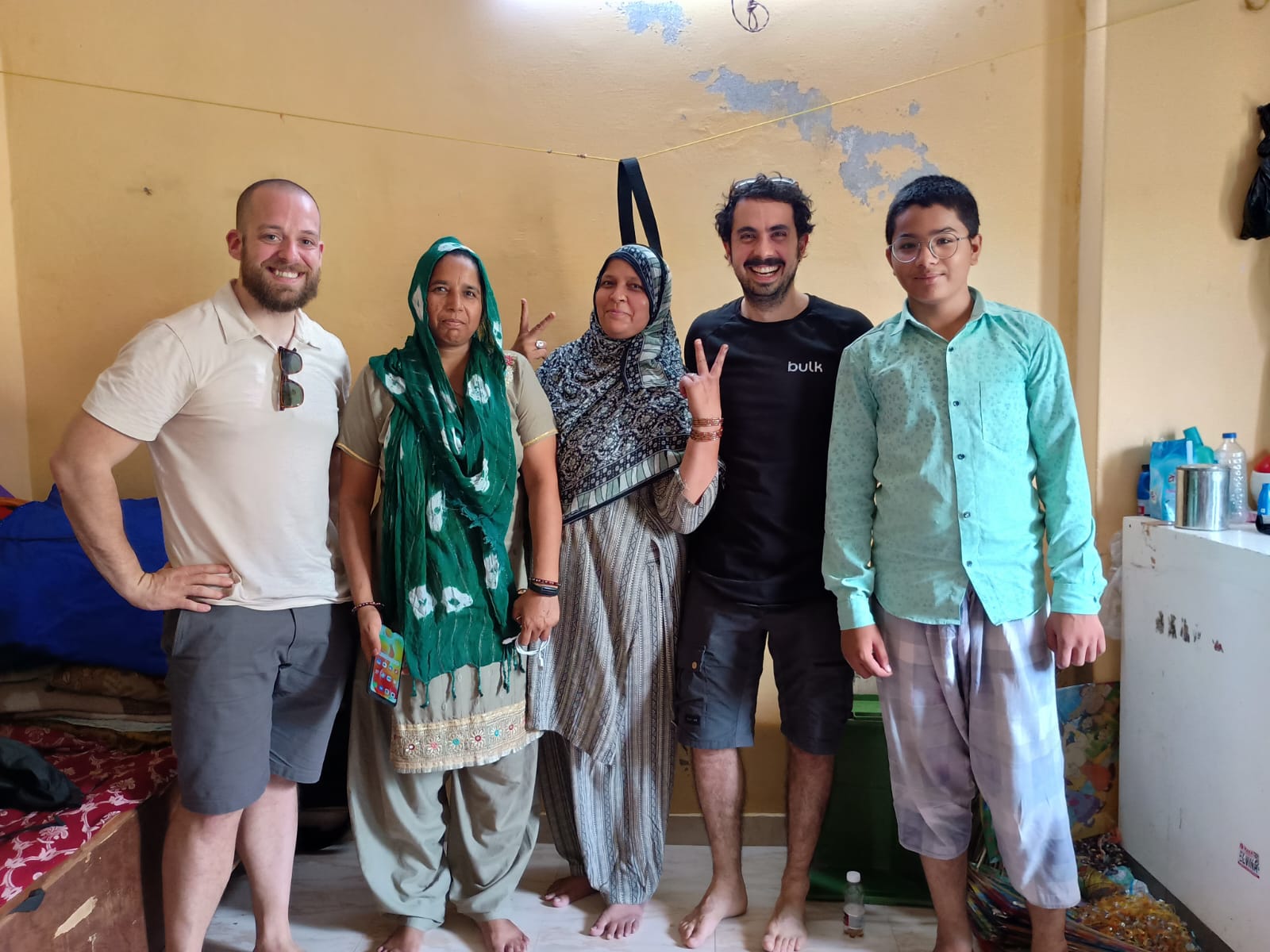COMMUNITY HATS
COMMUNITY HATS (Heat Adaptation and Treatment Strategies in South Asia)
Climate models suggest that South Asia will experience a higher number of days with very high temperatures that will have disastrous direct and indirect impacts on human health and livelihoods. Existing measurements of these temperatures, typically recorded at weather stations or via satellites, fail to capture the full impact at the micro-level—particularly within the densely populated and heterogeneous environments where the most vulnerable communities reside.
In an attempt to bridge this gap, a team of Harvard scholars, in collaboration with the Self Employed Women’s Association (SEWA) in India and the Centre for Advanced Research in Building Science and Energy (CRDF) at CEPT University, Ahmedabad, India, is conducting the Community Heat Adaptation and Treatment Strategies (CommunityHATS) study. This project follows hundreds of working women in the informal economy across various indoor and outdoor settings in South Asia, measuring heat and humidity 24/7 over a period of 13 months, across all seasons. This approach provides the team with a comprehensive view of how extreme temperatures and humidity are truly experienced on the ground.
The impact of these conditions on health, wages, mobility, mental health, access to livelihoods, and work productivity is being assessed through continuous physiological measurements and periodic testing of biomarkers. These findings will inform a wide range of policies: from determining work safety thresholds and wage protection strategies during extreme heat to shaping early warning systems and evaluating adaptation strategies.
The groundbreaking study is expected to offer critical, empirical, and downscaled data that will enable both local communities and governments to implement effective adaptation interventions. Moreover, it will demonstrate the urgent need for localized, data-driven, and evidence-based planning to address the impacts of climate change—providing direct evidence of its effects on human health at an unprecedented scale.
TEAM
FACULTY LEADS
Caroline Buckee, Professor of Epidemiology, Harvard T.H. Chan School of Public Health (Principal Investigator)
Satchit Balsari, Associate Professor in Emergency Medicine, Harvard Medical School (Co-Investigator)
HARVARD TEAM
Felipe González Casabianca, Research Affiliate
Peter Huybers, Professor of Earth and Planetary Sciences at Harvard University
Tarun Khanna, Jorge Paulo Lemann Professor at Harvard Business School; Director, the Lakshmi Mittal and Family South Asia Institute
Jennifer Leaning, Senior Research Fellow, Harvard T.H. Chan School of Public Health
Robert Meade, Postdoctoral Research Fellow, Epidemiology, Harvard T.H. Chan School of Public Health
Daniel P. Schrag, Sturgis Hooper Professor of Geology, Harvard University
Ahmed Shaikh, Assistant Professor, Critical Care Institute, Mount Sinai Health Network
Tess Wiskel, Climate Change and Human Health Fellow, FXB Center for Health & Human Rights, Harvard T.H. Chan School of Public Health
RESOURCES

COMMUNITY HATS webpage
The team measured temperature and related parameters in the various microenvironments that three poor working women in Gujarat inhabit. Find their stories and more on the study’s webpage.

Harvard Researchers Broaden Study on Extreme Heat’s Effects on Health and Livelihoods
Members of the Mittal Institute climate team returned to Ahmedabad, India, to work with SEWA to expand the Community HATS study to include more participants from various trades.

Harvard Project Tracks Heat’s Impact on India’s Most Vulnerable
Members of the Mittal Institute climate team traveled to Ahmedabad City in Gujarat, India, to work with SEWA in deploying sensors to collect temperature data from poor working women and their environments. Their work occurred concurrently with one of the most extreme heatwaves India has ever faced.
PBS NewsHour Features COMMUNITY HATS
Watch the PBS NewsHour clip from Dec. 11, 2023, to learn more about the work of Professors Satchit Balsari and Caroline Buckee on COMMUNITY HATS.

Chase van Amburg ’24 is Collecting Microclimate Data
Chase Van Amburg ‘24, an Integrative Biology concentrator who is also earning a concurrent Master’s degree in Applied Math, specializes in data science with a focus on climate change. In 2023, he received a grant from the Mittal Institute to begin work on “Mapping Heat in Microenvironments.”